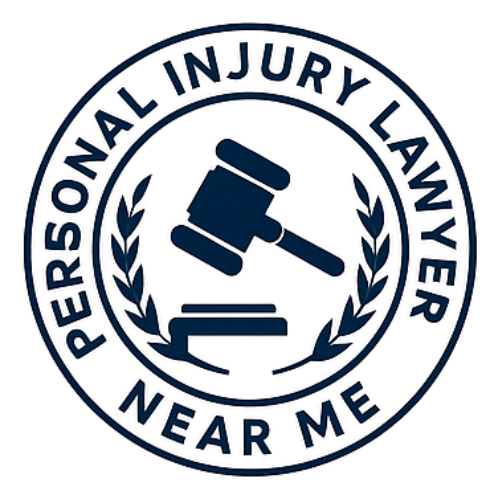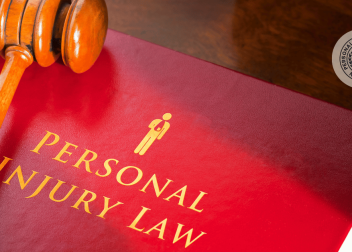Accidents happen—often when we least expect them. A car crash, a slip on a wet floor, or a workplace mishap can turn your life upside down in seconds. Medical bills pile up, lost wages strain your finances, and the pain lingers. That’s where a personal injury lawyer steps in: a legal ally who fights to ensure you’re not left footing the bill for someone else’s negligence.
If you’ve been injured due to someone else’s actions (or inaction), understanding how a personal injury attorney can help is crucial. This guide breaks down what they do, when you need one, and how to choose the right advocate for your case.
What Does a Personal Injury Lawyer Do?
A personal injury lawyer specializes in tort law, which covers civil wrongs causing harm. Their job? To hold negligent parties accountable and secure fair compensation for victims. Here’s how they help:
1. Case Evaluation & Investigation
Not every injury warrants a lawsuit. A skilled attorney reviews the facts, gathers evidence (police reports, medical records, witness statements), and determines if you have a viable claim.
2. Negotiating With Insurance Companies
Insurers often lowball victims, hoping they’ll accept a quick settlement. A lawyer knows the tactics and fights for maximum compensation, covering medical bills, lost income, pain and suffering, and future expenses.
3. Litigation (If Necessary)
If negotiations stall, your attorney files a lawsuit and represents you in court. Only about 5% of personal injury cases go to trial, but having a lawyer prepared for litigation strengthens your position.
4. Handling Complex Legal Procedures
From filing deadlines (statute of limitations) to navigating state laws, an attorney ensures paperwork is flawless and deadlines are met.
When Should You Hire a Personal Injury Lawyer?
Not every fender bender requires legal action, but you should consult a lawyer if:
✅ Injuries are severe (broken bones, traumatic brain injury, spinal damage)
✅ Long-term or permanent disability results from the accident
✅ Multiple parties are involved (e.g., a multi-car collision)
✅ The insurance company denies your claim or offers an unfair settlement
✅ Liability is disputed (the other side claims you were at fault)
Minor injuries with clear liability might be resolved without a lawyer, but a free consultation can clarify your options when in doubt.
Types of Personal Injury Cases
| Case Type | Common Scenarios |
|---|---|
| Car Accidents | Rear-end collisions, drunk driving crashes, hit-and-runs |
| Slip & Fall | Wet floors, uneven sidewalks, and poor lighting in businesses |
| Medical Malpractice | Surgical errors, misdiagnosis, and birth injuries |
| Workplace Injuries | Construction accidents, repetitive strain injuries |
| Product Liability | Defective vehicles, dangerous pharmaceuticals |
Each case requires specific expertise. For example, a medical malpractice attorney understands hospital protocols, while a car accident lawyer knows state traffic laws inside out.
How to Choose the Right Personal Injury Attorney
Not all lawyers are created equal. Here’s what to look for:
1. Experience in Your Type of Case
A lawyer who primarily handles workers’ comp claims may not be the best fit for a wrongful death lawsuit. Ask about their track record with cases like yours.
2. Trial Experience
Even if your case settles, you want a lawyer ready for court. Firms that never go to trial may push for quicker, lower settlements.
3. Fee Structure
Most personal injury lawyers work on a contingency fee—they only get paid if you win (typically 25%-40% of the settlement). Avoid attorneys demanding upfront fees.
4. Client Reviews & Reputation
Check Google reviews, Avvo ratings, and state bar records for disciplinary actions. A reputable lawyer will have a history of satisfied clients.
What Compensation Can You Recover?
A successful claim may include:
- Medical expenses (hospital bills, rehab, future treatments)
- Lost wages (past and future income lost due to injury)
- Pain and suffering (physical/emotional distress)
- Punitive damages (in cases of extreme negligence)
For example, the average car accident settlement ranges from $20,000 to $30,000, but severe cases can reach millions.
Myths About Personal Injury Lawsuits
❌ “Filing a claim is greedy.”
→ Compensation isn’t about getting rich but covering real losses.
❌ “I can handle the insurance company myself.”
→ Insurers have teams of adjusters working to minimize payouts.
❌ “Lawsuits take years.”
→ Many cases settle within months if liability is clear.
Final Thoughts: Why You Need a Lawyer
An injury can derail your life—physically, emotionally, and financially. A personal injury lawyer isn’t just a legal representative; they’re your advocate, negotiator, and, when necessary, your warrior in court.
If you’ve been hurt due to someone else’s negligence, don’t wait. Statutes of limitations vary by state (e.g., two years in California, three in New York), and evidence fades over time.
Next Steps
- Document everything (photos, medical records, witness contacts).
- Avoid giving recorded statements to insurers without legal advice.
- Consult a personal injury attorney—most offer free case evaluations.
Your health and future are too important to leave to chance. Get the legal support you deserve.
Have you or a loved one been injured? Find a trusted personal injury lawyer near you today.



